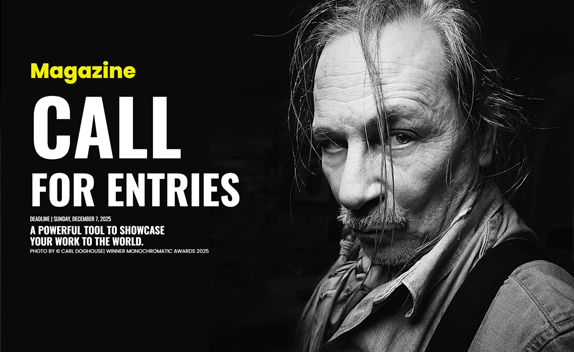Purgatory is a personal reinterpretation of Dante’s work, an oneiric photographic/textual journey inside japanese modern society and its critical topics.
The viewer is presented with everyday street situations and people candid portraits in a way to represent, sometime in contrast with the text, each single circle of the purgatory and its specific problem the author wants to address. Tools used are a fujifilm xpro2 with 23mm f2 lens, using off-camera double flash on a bracket (flash Q20 + Fujifilm ef-x20) and a ricoh grii with 18.3mm lens using single off-camera flash (godox tt350), switching in between the two setup as needed.
The project is composed by 8 parts: it all starts from the entrance, were salarymen wanders the city streets like lost souls trying to find freedom from corporates control, before entering into the purgatory circles.The trip goes then up to the circle of pride, where women fights for their rights; circle of envy, with people trapped in behind glass; circle of wrath, in which people obsessed by daily routine blame themselves or the others; circle of sloth, holding people living in the darkness of laziness; circle of avarice, where a black and white human mass lives trapped in their company rules; circle of gluttony, having people eating for their own desire; and finally circle of lust, where people live pretending to enjoy their lives. In the sub-project texts, the author try to overview each circle’s issue in a storytelling way, also laying down questions to the viewer -most of them kept without an answer- but always driving to a positive end.
About Daniele Martire
Daniele Martire (italy, 1985) is a full-time project manager who loves design and experiments with photography on the side. He started documenting concerts with a film camera, and delves into digital nowadays as well. As an introspective person, he uses photography as an intimate tool to remember faces and places and to express his feelings and visions.He began street photography in japan, depicting daily life in double exposures. To him, street photography is all about feeling the city, its sounds, scents and lights – the boundaries in between observing and living in the city.His work has been exhibited in Italy, uk, belgium, france, philippines, russia and usa. he is co-founder of the superluna collective. [Official Website]
Vanishing lives, the entrance is the introductory part of the project “Purgatory”. Shot late at night in Tokyo and suburbs when salarymen are finally going back home, just few hours before waking up to go back to work again; subjects are wandering the lively huge city like lost souls, their identities and lives fully controlled by corporates, someone intended to break the loop by committing karoshi (i.e.overwork death), one of the biggest issue in japan rarely spoken about on the outside. They are at the entrance of the Purgatory since, on the contrary of Dante’s work, they still can find their life back by fully committing government and corporates to change their laws and policies, without affecting productivity. Something is already changing, slowly.


Circle of pride, first round of the purgatory: here they wander the souls of women who still fight for their rights manifesting to the world all of their female pride. In a society where man is still its main recognized pillar, women are fighting their rights to be equally regarded by companies, as their males counterparts. traditionally considered “ryosai kenbo” (good wives, wise mothers), their condition has changed among the historical periods, up and down to today where women not only have to care about family, its economic balance and education, but also competitively work, either for their career and their upkeep, for salary 40% less than their male colleagues. And again, in a society where aging is already a time bomb, also having no time (to make new babies) is a death sentence. But, girls (also) want to have fun!



Circle of envy, second round of the purgatory: here they get stuck the souls of people who are trapped behind walls and glass, envying people on the outside world. They all seek peace, pretending to ease their mind lurking in cafeterias, far away from work rushing somewhere in taxi and trains. And the train system in Japan is huge, (almost) on time, always clean and efficient but when more than a half of the population in the boundless capital travel and commute by train only, that could became a critical issue. Especially during rush hours, even walking in the vast and crowded train stations can be a pain while “oshiya” are pushing people inside the carriage, the suffocating conditions inside increase stress levels. Finally people are forcedly touching each others, breathing the same bacterial air. That is probably one of the reason why those eyes are envying you staying in the outside (stress free?) world.



Circle of wrath, third round of the purgatory: here they wander the souls of people who, worried, irritated and oppressed by the daily demanding routine, blame themselves or the others to finally find relief. Japan is a low crime rate country with a tight degree of control and ban on weapon and drugs sales. It has a culture based on collaboration, that reject violence and pursue honor and honesty; a culture where getting angry is considered a childish thing, not to do in public. On the other hands, the crumbling of the social relationship, the deepening economic recession and the rising unemployment are increasingly isolating people, which are by culture already less emotionally expressive than any other country in the world, avoiding confrontations and suppressing their negative feelings, which would remain restricted inside their pressure shells forever. And six seconds is how long the peak of anger can last at most, in the stressed people living in Purgatory. Many are looking for ways to relax, from meditation to smashing plates against a wall and sex massages.But still, someone is murdering himself or others to get out of loop.
Sagamihara, 2016 / Ibaraki, 2010 / Akihabara, 2008 / Ikeda, 2001 / Tokyo subway, 1995 / Okayama, 1938
Culture, social isolation, trauma and competitive modern society are probably what ignite these tragedies. Should we all stop for six seconds, pretending to fuck-off the system, and finally look at ourself and the others with peace of mind?



Circle of sloth, fourth round of the purgatory: here they hide the souls of people living in their own darkness of laziness.In between lights are the shadows, and Tokyo is the city of such contrast, thanks to its dynamic and thwarted topography among very high skyscrapers and low traditional houses.Indeed, even though the set is shot entirely during clear days, it is plainly noticeable how workers, and people in general, live their fast lives almost inside darkness: under the artificial Lights of their roofs and the infinite battle of lights and shadows outdoor.Are they so slothful to leave their safe daily routine in the big city or is there no way around?



circle of avarice, fifth round of the purgatory: here the soul of a black and white human mass is trapped inside the walls of their offices, not looking for a way out. Tokyo, night. everywhere crowds of salarymen are enjoying their lives: drinking in small bars up to drunkenness, laughing out loud, entering sex clubs and massage rooms with colleagues, smoking and playing pachinko alone up to sunrise. choosing to relax there, instead of their narrow and noisy apartments, and valuing their work over all else, family become just a distant memory. Tokyo, late evening. artificial lights enlighten the offices in the skyscrapers, human shadows inside are still working, chatting or watching television. Tokyo, daytime. white collars are reasonable busy working in front of their shiny monitors, silence in the air. they are already tired and stressed: last day was again very long, commuting was crazy with few to no sleep at all, knowing also today will be the same, all over again up to the end of their career. Japanese economy revolves almost entirely around salarymen; lacking individuality, they are expected to work a lot and overtime, granting all of their bosses requests. they are trained to live for the corporate and even outside the workplace, their few free-time activities are involving colleagues to still be bounded in the company fences. With such a situation, the salaryman does not have time to raise a family, impacting on the birth rate of the quickly aging nation. their life so imbalanced in work and personal life, always under pressure and stress, may lead to clinical depression or even suicide. Are they so stingy, working hard for their own pleasure only? or are corporates squeezing them so much that they only look for a bit of relax? for now, let’s all build the richness of our hearts through our jobs!



Circle of gluttony, sixth round of the purgatory: here they wander the souls of the human beings eating food for their personal desire, driven by modern society standard, not thinking about other’s needs. Tokyo is renowed as the world’s gourmet capital: food may be found everywhere at anytime of day and night, and it is one of the most discussed topic among people. On the other side, very few really care about food lost as a negative consequence of our modern society, dominated by consumerism and aestethic. it is estimated that Tokyo alone produces about 6tons of food waste every day, which could instead feed more than 4 million people a day also in the same highly developed nation where food security is still an issue. Despite Dante’s advice long time ago, companies and people are only recently understanding how their (our) behavior is affecting the whole planet. he was wise, and we are again late.



Circle of lust, seventh and last round of the purgatory: here they take delight the souls of people who pretend to enjoy life. Tokyo is also a city of lust: sex is an inseparable charm of the city, its scent and visuals are in every spots. pachinko slots, in where people try to win money by losing them, adds to the sound of the city with their exhausting metallic noises and flash lights. all quietly managed by the yakuza, (almost) standing in the sun. But here the focus is instead on the fully legal lust of smoking, that has almost nothing to do with criminal organizations, but only reminiscence of cool movie characters. People want to be cool too, pretending a smoke could give them the relax they need in between commuting to work, after a night out with coworkers or in a love hotel. Nevertheless, the government wants to completely forbid smoking in public spaces, restaurants and izakaya within the 2020 olympic games, without decreasing cigarette’s price but still owning more than 30% of the japan tobacco shares. Will be people happier, or healthier?










